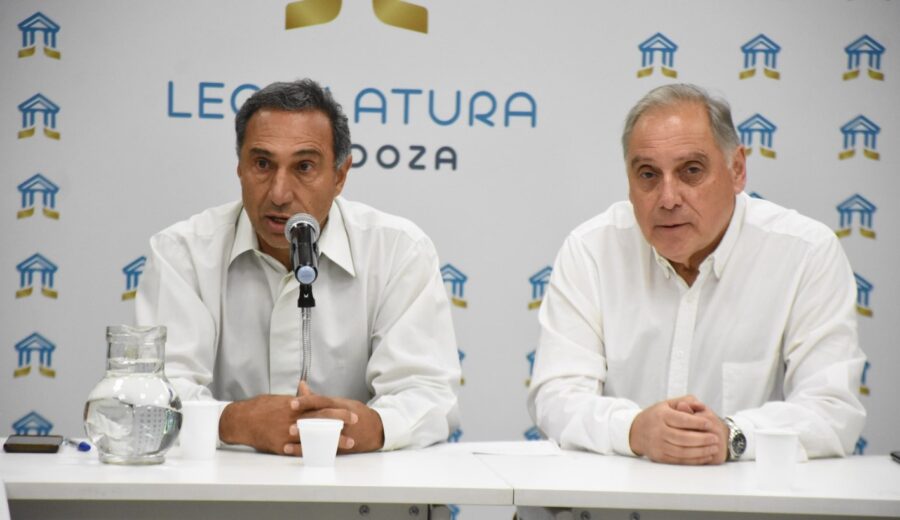
The Health Committees of the Senate and the House of Representatives of the province of Mendoza met to analyze the situation.
Argentina.- The Health Committees of the Senate and the House of Representatives met this week at the Margarita Malharro de Torres building of the Legislature of Mendoza to establish a joint action plan addressing the issue of gambling addiction in adolescents in the province.
During the meeting, which included legislators from various political backgrounds, the creation of a forum that brings together all involved stakeholders was proposed, with the goal of finding collective solutions to tackle this issue.
The radical deputy Daniel Llaver, president of the Public Health Committee in the Chamber of Deputies, emphasized that gambling addiction in adolescents is an issue that affects society at large and requires urgent and multidisciplinary attention. He also highlighted the importance of gathering and discussing the existing projects and initiatives in both Chambers, with the purpose of generating proposals that, although they will not eradicate the problem, can reduce its impact and control its effects.
Then, Senator Claudia Najul celebrated the meeting and stressed the need for an intersectoral and comprehensive response to face this challenge. She mentioned that some legislators have been in meetings organized by the Directorate of Games and Casinos, along with representatives from the ministries of Education and Health, and from the National University of Cuyo. Additionally, she indicated that surveys are being conducted at the national and provincial levels to better understand the magnitude of the problem and gather data that will guide future legislative actions.
For his part, Senator Félix González suggested the possibility of adopting a more structured research approach, similar to the «hearings» held in the United States Senate, where experts and key players present documents and testimonies that allow for a deeper analysis of the issue. He also proposed generating political and legislative recommendations that address the phenomenon of non-substance addiction, which has been amplified with the proliferation of digital platforms.
The radical senator Fernanda Sabadin shared her experience in recent meetings with adolescents and highlighted the young people's interest in discussing the issue. Additionally, she mentioned that in the assemblies organized by the Ministry of Health of the province, adolescents shared their concerns, such as the difficulty of finding recreational alternatives that do not involve screen use, and the relationship between digital consumption and mental health.
Deputy Tina Morán emphasized that the problem of gambling addiction has a «deep political dimension and that it is urgent to establish concrete agreements to advance in the search for solutions». She also noted the importance of dialoguing with the platforms authorized to operate in the province, as the use of these applications is not limited to adolescents, but also affects adults in various sectors of society.
Deputy Elisabeth Crescitelli, former Minister of Health, opined that prohibition could lead to clandestine activities and advocated for prevention through educational campaigns that include all involved ministries. She mentioned that, in a virtual context, it is complex to find adequate tools to combat the problem. On the other hand, she said that she considers it more effective to legislate in a way that can control access to certain platforms and protect minors.
Meanwhile, Senator Marcos Quattrini expressed that the internet has surpassed current controls and that a «firm political stance» is needed. He proposed evaluating the costs and benefits of regulating betting, suggesting that access to these platforms be prohibited, at least initially, to curb the social and economic impact of gambling addiction on public health.
Later, Deputy Juan Pablo Gulino proposed that the Legislature of Mendoza convene both committees to carry out joint work and create an Observatory that permanently advises on the issue and its technological changes. He maintained that, given the rapid pace of technology compared to legislative progress, tools must be designed that allow the Executive and local governments to act quickly, taking into account the different realities of each municipality.
See also: In Mendoza, the law that allocates a quarter of the revenues from casinos and gambling to Mental Health programs was regulated
Subsequently, Deputy Roxana Escudero indicated that control over the presence of minors in casinos and the use of online games needs to be reinforced. She highlighted that «prevention must begin from childhood, in coordination with schools and families, who are also responsible for the use of devices at home».
Duilio Pezzutti emphasized the importance of legislating on compulsive gambling without resorting to prohibitionist approaches, arguing that regulation is more effective than total prohibition. In his opinion, examples from other countries should be studied and measures from the Executive should be strengthened with proposals that address the problem from a realistic perspective.
Senator Félix González, also recommended a prevention, education, and treatment-based approach. He pointed out the need for an action plan that includes civil society and suggested the involvement of influencers and social networks to raise awareness and collect useful data, with the goal of building legislative proposals grounded in the current reality of young people.
For his part, Deputy Raúl Villach emphasized the importance of collaboration between sectors and expressed doubts about the effectiveness of diagnoses that do not translate into concrete actions. He considered it necessary to study technological methods that limit access to online gaming platforms, without resorting to prohibitionist measures that could be counterproductive.
Finally, the presidents of both committees, Abel Freidemberg and Daniel Llaver agreed on the need to work so that the legislation is concrete and effective.









